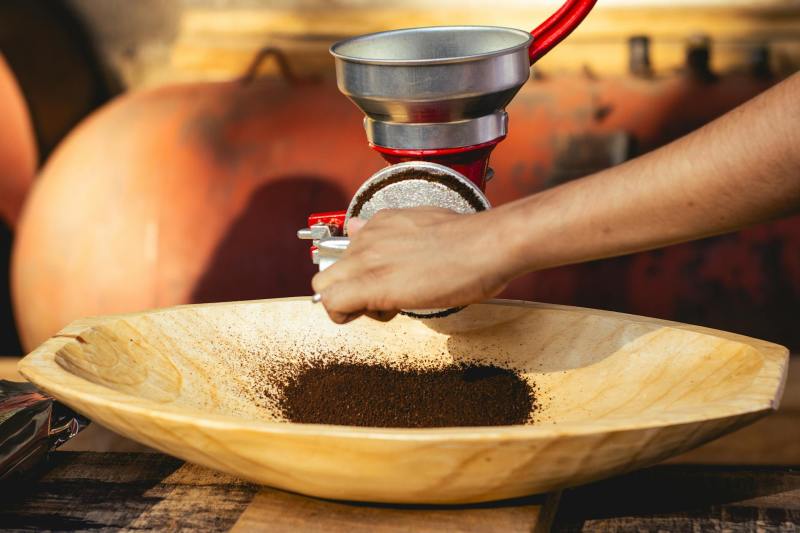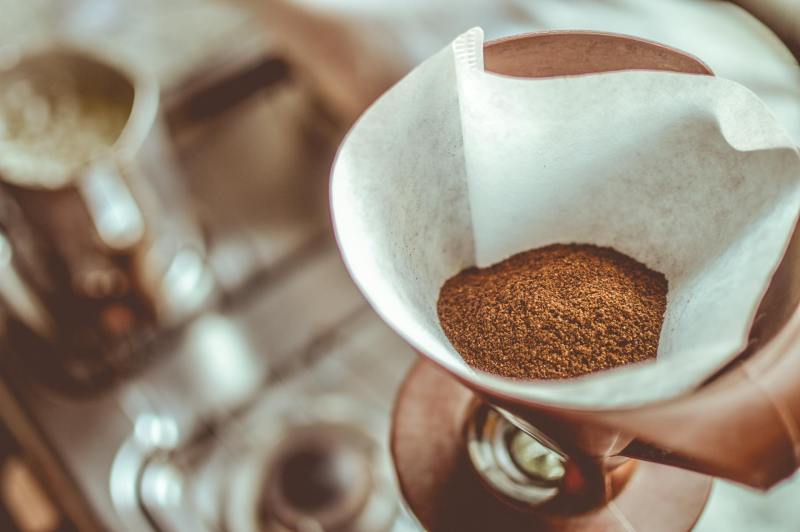Perfectly described by Chris Smith, co-owner and founder of Ground Ops Roastery + Bakehouse, “The day doesn’t truly begin until that first sip of coffee.” Yet, according to Smith, the story of coffee extends far beyond its role as just a drink. Coffee has so many uses both inside and outside of the kitchen — that most of us coffee drinkers fail even to acknowledge. From cooking with coffee grounds, such as in tenderizing meat, to using them as fertilizer for plants, consider these surprising uses for ground coffee.
Ground coffee uses in cooking and baking

Coffee’s role in the kitchen extends way beyond use in your coffee maker. At Ground Ops, Smith uses a finely ground coffee, paired with other seasonings, to create an “Earthy, slightly sweet and bitter note that complements meats, poultry, and even vegetables beautifully.” Using ground coffee to tenderize meat is a great kitchen hack, since the natural acids in coffee can help break down tougher cuts of meat, resulting in a softer texture.
Coffee grounds can be added to your favorite dry rub seasoning blend and rubbed onto your meat a few hours before cooking to allow it to work its magic! Used coffee grinds can also be re-brewed to make coffee again — but not for drinking. After brewing, you can use the coffee itself (after allowing it to cool) to marinate your meat, resulting in a more flavorful and succulent taste. Smith also shares that he has used ground coffee to create a BBQ sauce, complete with coffee, brown sugar, cacao, and vinegars, which makes the perfect pairing with various types of meats.
Beyond its use with meat, many bakers have also found creative ways to incorporate coffee into baking. Ground coffee is often paired with chocolate to create a stronger, more nuanced chocolate flavor or used in baking various coffee-flavored treats, icing, or frostings. “We use coffee and finely ground coffee in our buttercream to create the mocha rolls, espresso rolls, sourdough chocolate cake, and our cold brew cake. The cold brew cake is a family recipe from my wife’s Grandma Colavecchio, where we use our freshly brewed cold brew coffee to create a customer favorite, he says.
Gardening

Using ground coffee for baking and cooking inside the kitchen makes sense to me, but I’ve recently learned about its uses outside of the kitchen, which fascinates me. According to Smith, ground coffee can be used as a beneficial fertilizer, as the “Nitrogen, phosphorus, and potassium present in coffee grounds leach into the water and provide essential nutrients for acid-loving plants like azaleas, blueberries, and roses.”
Various research studies have concluded that ground coffee contains the bioactive compounds necessary to enrich garden soil and can help boost the health of certain plants with a simple sprinkle. Smith also notes that incorporating coffee grounds into your garden can improve drainage, enhance soil structure, and provide a slow-release source of nutrients as they decompose. Additionally, coffee grounds may play a role in suppressing the growth of weeds. “Just sprinkle them around your plants and gently work them into the soil or add them to your compost pile,” he says.
Skincare, household, and cleaning

Have you ever seen a coffee scrub in a face wash or a body wash? Ground coffee’s uses extend to skincare and hygeine products, too. This is because used coffee grinds may contain antibacterial properties that can help to exfoliate your skin. “The slightly abrasive texture of damp coffee grounds makes them a natural exfoliant for the skin, helping to remove dead skin cells from the surface of your skin. You can mix them with coconut oil or honey for added moisturizing benefits,” says Smith. Additionally, studies suggest that the chlorogenic acid and melanoidins in coffee may be beneficial in treating acne and promoting wound healing.
Throughout your house, ground coffee can also be used to help aid in cleaning. For example, many use ground coffee for its abrasive nature, which can help clean stuck-on messes on pots and pans. Using damp coffee grounds is a natural and gentle abrasive cleaning agent, making it a suitable household cleaning option for those who prefer to avoid harsh, commercial cleaners. After using ground coffee to clean pots and pans, give everything a good rinse to ensure no residue is left behind. In addition to pots and pans, a cleaning mixture made with coffee grounds can be used to clean other surfaces, such as a cooktop or kitchen sink.
Smith also shares another innovative household use for coffee grounds: an aromatic air freshener. Using “A bowl of dry coffee grounds can act as a natural odor absorber, neutralizing unpleasant smells in your refrigerator, pantry, or even shoes. For a quick air freshener, simmer a pot of used coffee grounds with a cinnamon stick or a few cloves,” he shares.




